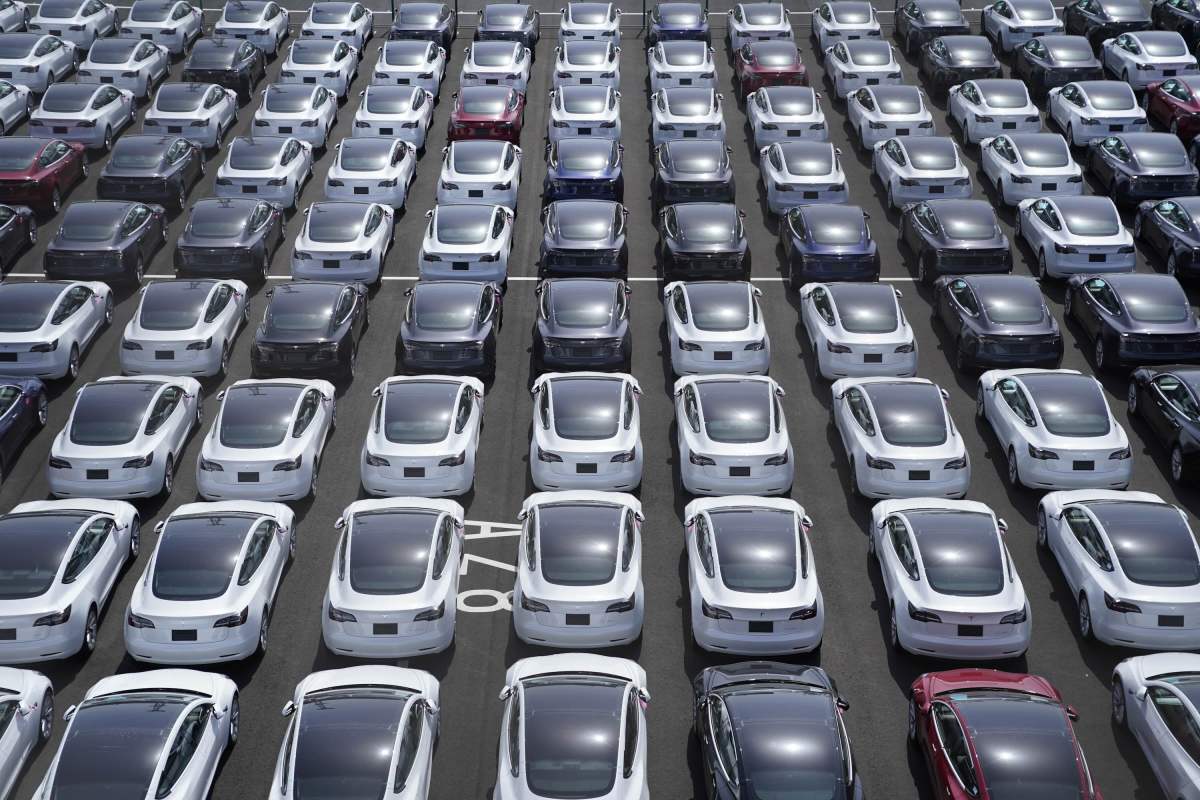As Tesla gears up to report what will likely be unimpressive financial results for the first quarter on Tuesday, the company is making more moves to go “balls to the wall for autonomy,” as CEO Elon Musk put it last week in a post on X. Over the weekend, Tesla dropped the price of its […]
© 2024 TechCrunch. All rights reserved. For personal use only.
As Tesla gears up to report what will likely be unimpressive financial results for the first quarter on Tuesday, the company is making more moves to go “balls to the wall for autonomy,” as CEO Elon Musk put it last week in a post on X.
Over the weekend, Tesla dropped the price of its Full Self-Driving (FSD) advanced driver-assistance system to $8,000, down from $12,000. That price cut is in addition to last week’s drop of the FSD monthly subscription to $99, down from $199. The push to get FSD into more cars could be a bid to collect more data as Tesla works to boost the neural networks that will power fuller-scale autonomy. FSD today can perform many driving tasks in cities and on highways, but still requires a human to remain alert with their hands on the wheel in case the system requires a takeover.
Tesla faces narrowing profits as it places a major and expensive bet on autonomous driving technology. Last week, Tesla laid off 10% of its staff in a move to reduce costs in preparation for the company’s “next growth phase,” per an email Musk sent to all employees.
Earlier this month, Musk abruptly announced on X that Tesla was pausing the development of its $25,000 electric vehicle in favor of a robotaxi that he promised to reveal in August. Sources within Tesla have confirmed to TechCrunch that they didn’t have prior warning from Musk on this sudden shift and that internal restructurings reflect a new ethos that puts robotaxi development at front and center.
All of this is happening as Tesla zigzags on its EV pricing strategy.
Last week, Tesla ditched EV inventory price discounts, but over the weekend slashed prices on the Model 3 and Model Y by as much as $2,000 in the U.S., China and Germany. As we saw during the first quarter of 2023, those price cuts are taking their toll on Tesla’s income and margins.
Tesla is scheduled to report earnings after markets close April 23. Musk has previously said that without autonomy, Tesla is “basically worth zero.”
The company will need to convince investors tomorrow that its shift in priority to autonomous vehicles is a silver lining in the cloud of declining margins, rather than just smoke and mirrors.
Since Musk laid off staff and announced that Tesla would be going hard on autonomy, Tesla’s share price has dropped almost 10%. Shares have fallen over 42% since the start of the year.
Tesla’s lower first-quarter delivery figures combined with price cuts are ingredients for a smaller profit pie. And analysts seem to agree.
Analysts polled by Yahoo Finance expect a profit of $0.48 per share on $20.94 billion in revenue. As a reminder, Tesla generated $25.17 billion revenue in Q4 and $23.3 billion in the first quarter of 2023.
Tesla delivered 386,810 vehicles in the first quarter of 2024, down 20% from the 484,507 it delivered in the final quarter of 2023. It’s worth noting that this wasn’t just a quarter-over-quarter blip. Tesla delivered fewer cars than the first quarter of 2023 — the first year-over-year drop in sales in three years.
Tesla’s Q4 results show a company already grappling with shrinking profit margins due to its price-cutting strategy, rising costs of its Cybertruck production launch and other R&D expenses.
The automaker reported net income, on a GAAP basis, of $7.9 billion in the fourth quarter — an outsized number caused by a one-time, non-cash tax benefit of $5.9 billion. The company’s operating income and its earnings on an adjusted basis provided a clearer picture of its financial performance.
Tesla reported operating income of $2.06 billion in the fourth quarter, a 47% decrease from the same year-ago period. On an adjusted basis, the company earned $3.9 billion, a 27% drop from the same period last year.
The question is whether Tesla can prevent that profit pie from shrinking to profit muffin.
Since Tesla reported its Q1 2024 production and delivery numbers, the company has continued to pull various financial levers aimed at attracting new buyers and inducing existing customers to pay for FSD — all while reducing costs and maintaining profit margins.
Those opposing goals coupled with Musk’s “wartime CEO mode” status are bound to make the Q1 earnings call entertaining. Beyond that potential theater, there are pressing long-term questions about how Tesla delivers on autonomy and if it will be enough to convince investors that it can still lead and innovate.

Leave a Reply